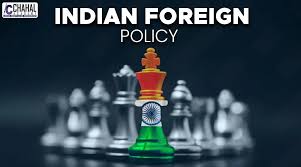Claim, counterclaim: On India and foreign policy
India must speak out on world issues with moral clarity, not tactical ambiguity.
President Donald Trump appears to have set the cat among the pigeons yet again so far as recent Indian foreign policy actions are concerned, this time with regard to an alleged assurance by Prime Minister Narendra Modi that India would halt its oil imports from Russia. Speaking at the White House, Mr. Trump said that Mr. Modi had assured him on Wednesday (October 15, 2025) that India “will not be buying oil from Russia... Now we’ve got to get China to do the same thing”. This utterance follows in the wake of a summer of heightened temperatures in the bilateral space, after multiple claims by Mr. Trump that he played a role in bringing Operation Sindoor to an abrupt halt, with a full and immediate ceasefire agreed only after “a long night of talks mediated by the United States”. India was quick to challenge the White House’s narrative, with a Ministry of Foreign Affairs spokesperson saying that he was unaware of a conversation between the leaders on the previous day, even if discussions were “ongoing” about deepening India’s energy cooperation with the U.S. Nevertheless, he did not unequivocally confirm or deny Mr. Trump’s assertion that India would be halting its purchases of Russian oil. A similar ‘soft denial’ approach seemed to be the chosen tack in the aftermath of Operation Sindoor.
The quandary faced by Indian foreign policy strategists is that India is in a sensitive phase of bilateral engagement with the U.S., specifically regarding its hopes for bilateral trade deal in the nearer term and shared regional goals in the context of the rise of China, over the longer arc of the evolving balance of power in Asia. Additionally, Mr. Trump’s sheer chimerical nature, which is either the trait of an impulsive but popular leader on American soil, or the standard “art of the deal” playbook trait of a President seeking to bring global counterparts to the negotiating table, appears to be routinely frustrating South Block mandarins seeking predictability in their engagements with U.S. interlocutors. India may have found an appropriate response in avoiding knee-jerk public reactions to the sometimes outlandish claims of Mr. Trump. However, the bigger challenge for New Delhi is to clarify its global posture on issues such as the purchase of Russian oil in the context of Russian aggression in Ukraine. It would do well to remember that it is not so much the strident voices of the North Atlantic that matter as much as India’s hopes to be a true global power one day, and speak with the moral clarity that accompanies such a title.
